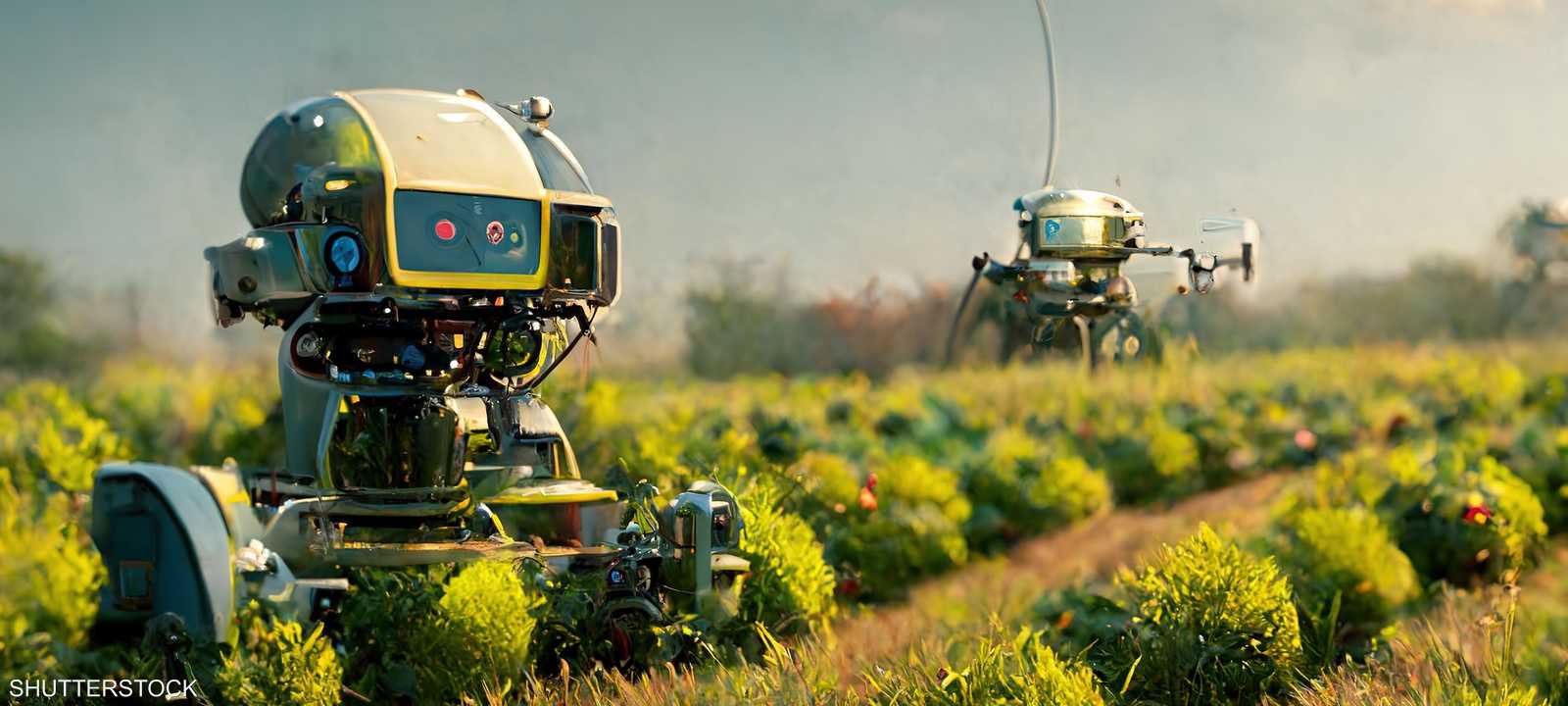
AI and Food
Can a computer cook? Regarding the role that artificial intelligence can play in the music industry, he talked about presenting the sound of the planet “Umm Kulthum” through artificial intelligence technology in his speech.
Daoud uses this approach to simplify his purely technical view of the impact of AI on the music industry, but the analogy doesn’t seem right to an AI expert. Given that AI, while not directly “cooking”, may be able to do much more difficult things than that given the opportunities it presents across the food industry sector… so how?
Do machines control humans?
“AI will have a bigger impact on the food industry as it will change every aspect of the supply chain and production process, quality and customer experience, and sustainability efforts and a few others,” confirmed an information technology expert. Dr. Ahmed Banafa of the United States made an exclusive statement on the Sky News Arab Economy website.
The San Jose State University professor and academic advisor explains in minutes the most salient aspects of AI applications in the food industry, as well as the most salient challenges and ways to overcome most of them. The most prominent uses are reflected in seven main areas, as follows:
- Intensive farming
Artificial intelligence enables farmers to improve crop yields and reduce resource waste; by analyzing data from sensors, satellites and drones, machine learning algorithms can help predict weather patterns, detect plant diseases and determine the best time to harvest. - Food Safety and Quality Control
AI algorithms can be used to monitor and analyze data from sensors, cameras, and other devices to identify potential contaminants, spoilage, or defects in food; this helps ensure food safety and quality, in addition to boosting consumer confidence, Reduce disease. - Supply Chain Optimization
AI can improve the efficiency of food supply chains by improving inventory management and predicting demand patterns, as well as streamlining logistics. - Personal advice and customer experience
AI-driven recommendation systems can analyze customer preferences, dietary restrictions, and purchasing behavior to provide personalized food recommendations; this enhances customer experience, increases customer loyalty, and drives sales in the food industry. - food development
AI can aid in the development of new foods by analyzing extensive databases of recipes, ingredients, and nutritional information, helping to create unique and desirable foods. - Sustainable Agriculture and Production
AI technologies can also help improve resource utilization and reduce the environmental impact of agriculture and food production, so AI-driven systems can improve water management, improve energy consumption, and reduce the use of pesticides and fertilizers, thereby supporting the promotion of sustainable practices . - reduce food waste
By analyzing data such as stock levels, order patterns and expiration dates, AI can play a key role in reducing food waste at all stages of the supply chain. AI algorithms can also improve production, distribution and inventory management. AI-powered systems can more accurately predict consumer demand, reducing the likelihood of unsold and wasted products.
With its ability to quickly process and analyze large amounts of data, artificial intelligence can provide actionable insights to prevent food waste and improve resource utilization.
Six Challenges
On the other hand, in an interview with Sky News Arab Economics, Dr Ahmed Banafa listed some potential pitfalls and challenges that he believes must be considered, including six main factors:
- impersonal
- Limited data quality and bias
- Privacy and Data Security Issues
- moral considerations
- downsizing
- System failures.. and technology gaps
He explained these elements, starting by noting that “AI systems lack human intuition, creativity and understanding of the environment,” arguing that in some aspects of the food industry, such as recipe development or customer service, a human touch and personal interaction may be preferred Outperform automated AI systems.
Additionally, AI algorithms rely heavily on data for training and decision-making. If the input data is low-quality, incomplete or biased, it may lead to inaccurate or biased results; biased data may perpetuate unequal or discriminatory practices, especially in areas such as dietary advice or recruitment algorithms.
It also drew attention to privacy concerns, noting that AI systems in the food industry often collect and process large amounts of personal data, including dietary preferences, health information and purchasing behaviour.
The nature and methods of accessing this data are critical to maintaining consumer confidence and complying with privacy regulations.
Relatedly, he also noted that the use of AI raises “ethical questions” that must be carefully addressed. For example, artificial intelligence can be used to manipulate or deceive consumers’ choices through personalized advertisements or recommendations.
Transparency, explainability, and fairness in AI systems are critical to ensuring ethical use and mitigating potential harm.
Dr. Ahmed Banafa also spoke about another challenge, “job displacement”, emphasizing that automation enabled by AI technologies could lead to layoffs and workforce disruption in certain areas of the food industry; critical It is about considering the social and economic impacts of AI adoption and ensuring that affected workers receive appropriate retraining or reemployment opportunities.
The artificial intelligence behind the injury of employees with dangerous symptoms!
Regarding challenges related to system failures, experts specializing in information technology said over-reliance on artificial intelligence systems could lead to vulnerabilities as system failures, technical flaws or cybersecurity breaches could lead to disruptions in operations and potential impact on food. Security, supply chain management or customer experience.
To mitigate these risks, strong backup plans and contingencies need to be in place.
fix bugs
In this context, Banafar stated that to address these shortcomings and challenges, it is important to adopt responsible AI practices, ensure transparency, strengthen cooperation between humans and AI systems, and regularly assess the impact of AI in the food industry. Applied effects and results.
